One need only read a story in the fantasy genre to see that our own history has a lot to do with its narrative. Even when the story takes place in an alternate universe or another planet altogether, there will be elements inspired by or directly related to our human past. It’s almost unavoidable. While some examples may be more straightforward than others, it would be incredibly hard to separate history from the fantasy genre. In fact, there are subgenres of fantasy which embrace it.
I would venture to say that, in one form or another, every country has a legend of a brave warrior who rises from the lowest of the low to be one of the most respected members of their tribe/city/country/what-have-you. I would also venture than the vast majority of the Western world has heard the tale of King Arthur. While I won’t even touch the controversy as to whether or not he and his knights of the round table truly existed, I will say that he is truly a legend. However in most cases of legends, there is the claim of fact.
Legends are something that we grew up with; they’re the stories of our youth in many ways. But what exactly is a legend? We know they are often grandiose stories of kings and knights and their amazing feats of selflessness or bravery. Legends can be tales told without magic or with, with fantastical creatures or without. They are different from history, even if they retain some historical fact, because they have been told over time and made grander in the telling. Legends are the genesis of all later fantasy and, next to fairy tales, the best place to start when exploring the fantasy genre.
Tales of the lost city of Atlantis, Beowulf, King Arthur, and El Dorado are all stories we are familiar with. They have been stories passed down and eventually written down as part of our human history. These are all stories that may have at one time been harbored in fact but have grown to epic proportions. People of European descent aren’t the only people to have legends — it’s a worldwide phenomenon. The Legend of the Matsheumhlope Crocodile, from what is modern Zimbabwe, tells of a boy who was caught by a crocodile only to be save by a falcon, a falcon never seen again. When the boy could no longer work he told the story of the falcon and his bravery and made statues which people bought when they visited to hear his tale. Soon the statues were owned by people far and wide, and now today the falcon is immortalized on the flag of Zimbabwe. This is just one of the many tales from around the world that grew into something beyond itself, its not a story forgotten, but is a story immortal.
Historic fantasy may, offhand, seem a lot like legend and, while they share some of the same characteristics, they are different beasts. As with legend, historic fantasy can be set around actual events, fictional events, or sometimes even legendary events, but also contains a fantastic, usually magical element. While the first thing that pops into your head may be that all historic fantasy takes place in a Medieval time frame, it has a much broader scope.
After looking into the subject, I would put forward that historic fantasy can take place virtually anywhere, and in a time period anywhere from the dawn of man to approximately the Victorian Age (or to tales that have civilizations mirroring these times in different worlds). I stop it there because of the Industrial Revolution really changed the face of history and storytelling. Stories set in a Victorian setting tend to lean more towards steampunk (which, as mentioned previously, is a subgenre of science fiction, but is not limited to science fiction in its entirety) or towards urban fantasy.
Often, ordinary people will experience extraordinary things like magic, fairies, or other fantastical creatures, but the backdrop is a specific point in history. Diana Gabaldon’s Outlander series is an excellent example. The main protagonist is sent back in time after stepping into a stone circle to 18th Century Scotland and gets involved in events of the day, such as meeting monarchs, lords, and even going to the New World.
Other historic fantasies can take place in historic yet well known places but deal with completely fictional people in completely fictional ways. We might recognize the green hills of Ireland, but the story may be about feudal lords that never existed. While the mannerisms, speech, and living conditions may depict a time in our actual past, these events never occurred, nor are they claiming to be true.
As far as definition goes, both legend and historic fantasy seem pretty easy. In fact, on the surface, they even sound the same. The exact definitions are revealed when one looks at the subtle differences between the two. One is not intrinsically better than the other, and both should be looked to as a form of entertainment. Legend will always be intriguing because somewhere someone told the story to another after witnessing some real event, and there will always be someone out there wanting to search down their origins. Historic fantasy is more of an escape but can still be a window back into the past. Both will continue to be mainstays in the fantasy genre.
Legend Recommendations:
- Eldorado
by Baroness Orczy
- Beowulf
- Edgar Cayce on Atlantis
by Edgar Evans Cayce
- Le Morte D’Arthur
by Thomas Malory
- Lost Horizon: A Novel
by James Hilton (Tibetan Legend of Shanga La)
- The Odyssey
by Homer
Historic Fantasy Recommendations:
- The The Saint-Germain Chronicles by Chelsea Quinn Yarbro
- Outlander
series by Diana Gabaldon
- Pendragon Cycle
by Stephen R. Lawhead
- Tigana
by Guy Gavriel Kay
- The Drawing of the Dark
by Tim Powers
Resources:
- Encyclopedia of fantasy. New York: St. Martin’s Griffin, 1999.
- My Home, Zimbabwe
- Middleton, Hayden. An Encyclopedia of Myths and Legends. New York: Heinemann Educational Books – Primary Division, 1999.



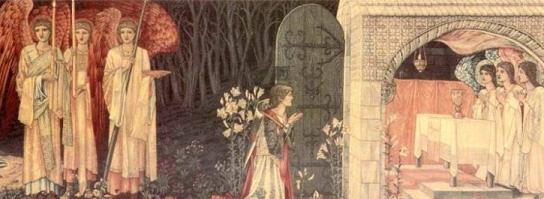
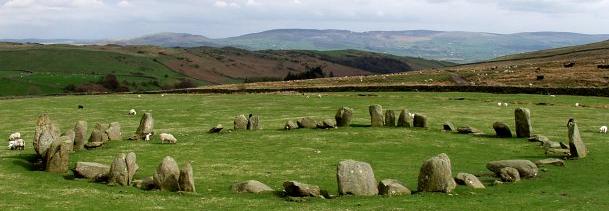
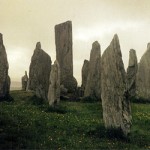
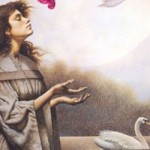
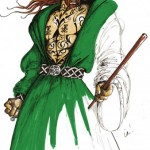
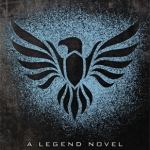
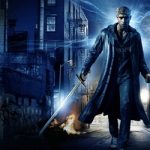
I just given this onto a colleague who was doing a bit analysis on this.